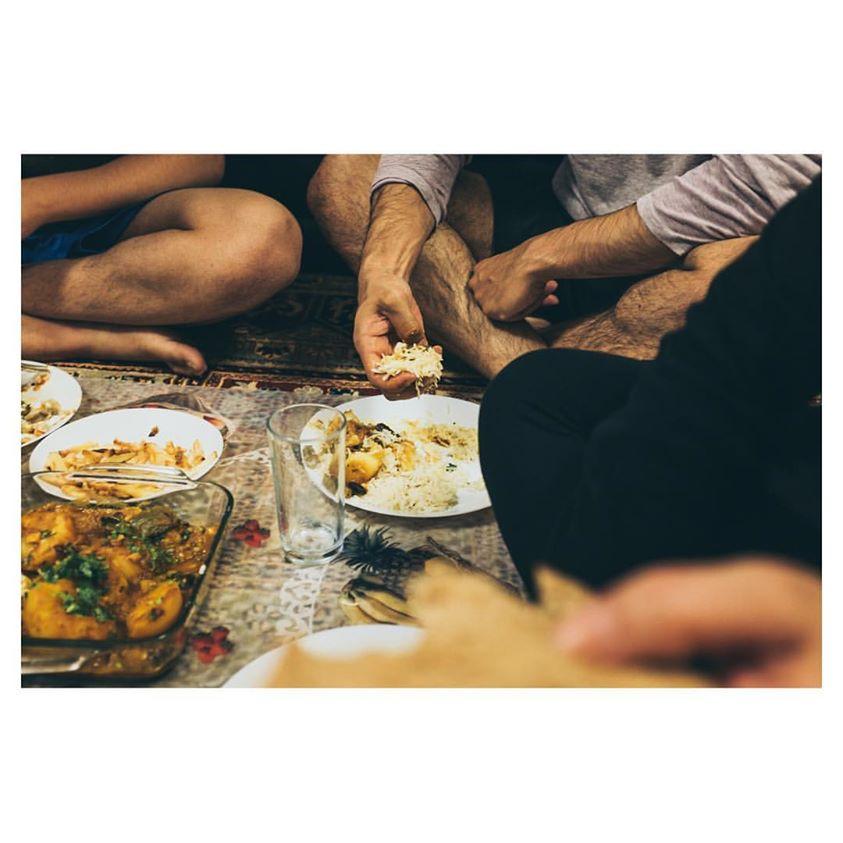Stunning photographs taken every day capture what Ramadan means to this family
"For me it means unity. Millions of people around the globe, wherever you are, you are all united, all eating and breaking fast together," Mr Ehsas says.

For 1.6 billion Muslims around the world, this weekend marks the end of the Islamic holy month of Ramadan.
As one of the five pillars of Islam, the fast lasts for the daylight hours from roughly 3am to 9pm, dependent on the time of dawn and sunset. For the entire month Muslims abstain from eating and drinking until break fast and the first sweet date of the evening iftar feast.
The sacred month is a time to share with loved ones; where people across the country sit down to eat with relatives, neighbours and friends.
Photographer Elham Ehsas has documented what each day of Ramadan looks like for his family.
"Every culture has their own take on Ramadan and I wanted to give the Afghan take; how we break fast, what we do during the day,” Mr Ehsas told The Independent.
"I wanted to get into the habit of shooting more and Ramadan was a conduit not only to show others about my culture but to learn more myself."
Mr Ehsas began to take daily photographs to show how his family experience Ramadan.
Ramadan is celebrated on the ninth month of Islam's lunar calendar or the Hijri calendar, which began in AD622 when Muhammad migrated from Mecca to Medina.
Depending on the sighting of he crescent moon, or hilal, the month began this year on May 26 and continued until the evening of Saturday June 24.
When fasting, Muslims will have one meal before dawn called suhoor and after a sunset prayer, the iftar feast is shared with friends and family.
"I've had days where I wake up and I'm thirsty as hell but it's amazing how your body adapts to when you say no," he told The Independent.
“As hard as we think something is, it's not half as hard because we forget the power of the human body and mind," he added.
For Suhoor the pre-fast meal, Mr Ehsas often opts for a toasted peanut butter sandwich with honey drizzled on top. The NHS advises keeping hydrated and having the right proportion of carbohydrates, fats and proteins between fasts.
Oxford based anaesthetist, Dr Razeen Mahroof said in a statement to the NHS that during fasting "any toxins stored in the body’s fat are dissolved and removed from the body.”
“I've been fasting from a young age and it's quite a good experience, it’s like a detox, giving yourself and your body a break,” Mr Ehsas describes.
Mr Ehsas says dates are his favourite iftar food because they are the first thing eaten when you break fast before the evening feast. This tradition echoes when the Prophet Muhammad broke fast with a sip of water and date at sunset.
"They are a big presence, both tasty and symbolic and every year we try new brands and have ones we always go back to because they’re so sweet and juicy,” he says.
For many across the country, the sacred month has involved prayers and charity as Muslims believe that Ramadan was the time when the Qu'ran was revealed to mankind through Prophet Muhammad. Fasting during Ramadan is considered to increase one's generosity, patience and closeness to God.
"The photograph most significant to me is the one of my mum praying, I think that embodies the spirit of Ramadan.”
"From a religious perspective it's that devotion. You give of your body, mind and time to your God and religion. I personally don't pray as much, but for my mum and millions of other Muslims around the world Ramadan is the period of time to fully bathe in the stream of religion."
"For me it means unity. Millions of people around the globe, wherever you are, you are all untied. United in principles, values and actions and all eating and breaking fast together.”
Mr Ehsas says that Ramadan signifies the time when his whole family sit and eat together, increasingly difficult in today’s fast-paced environment.
This also characterises the Eid-al-Fitr celebrations. Eid al-Fitr marks the end of the Ramaddan on the evening of Sunday June 25 and means "festival of breaking the fast."
"Eid, the end of Ramadan was like Christmas for me when I was a kid. In Pakistan we'd go out and buy new clothes for Eid and I'd always look forward to that," Mr Ehsas remembered.
Eid marks the first day of the new Islamic month of Shawwal and according to tradition, those who fast are rewarded on this day and greet each other wishing Eid Mubārak (Happy Eid).
“Families come together and you make the effort to see those you haven't seen," Mr Ehsas says.
"You wake up in the morning, do the Eid prayer and then go to your loved ones."
Subscribe to Independent Premium to bookmark this article
Want to bookmark your favourite articles and stories to read or reference later? Start your Independent Premium subscription today.

Join our commenting forum
Join thought-provoking conversations, follow other Independent readers and see their replies